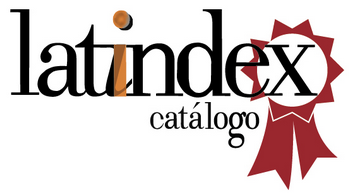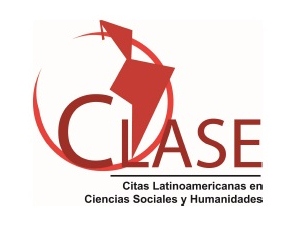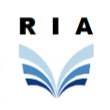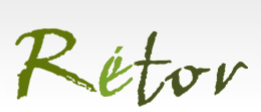La argumentación en filosofía: una modesta propuesta tipológica
Resumen
Recepción: 12 de diciembre de 2016 Aceptación: 24 de diciembre de 2016 El propósito inmediato de este trabajo es distinguir y describir los tipos de argumentación con que nos topamos en los textos filosóficos. Semejante tipología, si bien provisional y sujeta a discusión, debe al menos ser clara y sencilla. Tras ubicar la argumentación dentro de la filosofía teórica (como distinta de la filosofía práctica), comenzamos distinguiendo entre argumentos filosóficos directos y argumentos filosóficos indirectos; luego subdividimos los indirectos en históricos y metodológicos (o metafilosóficos), y los directos en puros e impuros (o si se quiere: transfilosóficos). Los cuatro tipos (que no clases ni géneros o especies) se ilustran con ejemplos. La tipología propuesta podría ser tener utilidad tanto en metafilosofía como en pedagogía. El principal uso metafilosófico estribaría en mostrar que todos los filósofos, por más divisiones que se inventen para separar y anatematizar, y por más apariencias en contrario que se produzcan por ciertas veleidades estilísticas, tienen en común el argumentar constantemente, aunque de formas diversas. El principal uso pedagógico sería el de enseñar mejor a los estudiantes de filosofía a argumentar según distintas modalidades.Citas
BOOLE, G. (1847). A mathematical analysis of logic: Being an essay towards a calculus of deductive reasoning. Cambridge: Macmillan, Barcley & Macmillan.
BOSANQUET, B. (1920). Implication and linear inference. Londres: Macmillan.
CHASE, M., S. R. L. Clark y M. McGhee (coords.) (2013). Philosophy as a way of life—Ancients and moderns:Essays in honor of Pierre Hadot. Malden, MA: Wiley Blackwell.
COLLINGWOOD, R. G. (1938). The principles of art. Oxford: Clarendon Press.
DARWIN, Ch. (1859). On the origin of species by means of natural selection, or the preservation of favoured races in the struggle for life. Londres: John Murray.
DAVIDSON, D. (1985). Plato’s philosopher. The London Review of Books, 7(14), 15-17.
EVANS, G. E. (1982). Varieties of reference. Oxford: Clarendon Press.
GAOS, J. (1962). De la filosofía: Curso de 1960. México: Fondo de Cultura Económica.
GAOS, J. (1973). Historia de nuestra idea del mundo. México: Fondo de Cultura Económica.
GUTTING, G. (2009). What philosophers know: Case studies in recent analytic philosophy. Nueva York: Cambridge University Press.
HADOT, P. (2002). Exercices spirituels et philosophie antique. Nueva edición revisada y aumentada. París: Albin Michel.
HUEMER, M. (2015). The failure of analysis and the nature of concepts. En C. Daly (coord.) The Palgrave handbook of philosophical methods (pp. 51-76). Houndsmills, UK: Palgrave Macmillan.
KRIPKE, S. A. (1982). Wittgenstein on rules and private language. Oxford: Basil Blackwell.
MENARY, R., (2010). Introduction. En R. Menary (coord.) The extended mind (pp.1-25). Cambridge, MA: The MIT Press.
NELSON, L. (1918). Von der Kunst, zu philosophieren. En Die neue Reformation, vol. 2. Gotinga: Vandenhoeck y Ruprecht.
Peirce Edition Project (1998). The essential Peirce, vol. 2. Bloomington: Indiana University Press.
QUINE, W. O. (1951). Two dogmas of empiricism. The Philosophical Review, 60(1), 20-43.
RESCHER, N. (2006). Philosophical dialectics: An essay on metaphilosophy. Albany: State University of New York Press.
ROSENBERG, J. (1996). The practice of philosophy. 3a edición. Upper Saddle River: Prentice Hall.
RUSSELL, B. (1920). Introduction to mathematical philosophy. Londres: Allen & Unwin.
SANTINELLO, G. (coord.) (1981-2004). Storia delle storie generali della filosofia. 5 vols. Roma: Editrice Antenore. [Hay traducción al inglés en curso bajo el título Models of the history of philosophy, Dordrecht, Springer.]
SAUSSURE, F. (1879). Mémoire sur le système primitif des voyelles dans les langues indo-européennes. Leipzig: Teubner.
SINGER, P. (2009). The life you can save: Acting now to end world poverty. Nueva York: Random House.
SINGER, P. (2015). The most good you can do: How effective altruism is changing ideas about living ethically. New Haven: Yale University Press.
SOKOLOWSKI, R. (1998). The method of philosophy: making distinctions. The Review of Metaphysics, 51(3), 515-532.
TAYLOR, A. E. (1912). The analysis of epistéme in Plato’s Seventh Epistle. Mind, 21(83), 347-370.
Una vez que un texto es aceptado para su publicación en Quadripartita Ratio, sus autores deben firmar dos documentos de carácter legal: una Licencia de uso y una Declaración de autoría.
Con la Licencia de uso, los autores autorizan la publicación de su obra y la difusión de ésta (integración en bases de datos, difusión en nuestras redes sociales, reediciones posibles, etc.). No obstante, se autoriza la descarga, reproducción y distribución de todos nuestros contenidos publicados, siempre que no se modifique el contenido y se indique su origen (nombre de la revista, volumen, número, páginas y dirección electrónica del documento).
Con la Declaración de autoría, los autores manifiestan que la obra es de su autoría, original e inédita.









